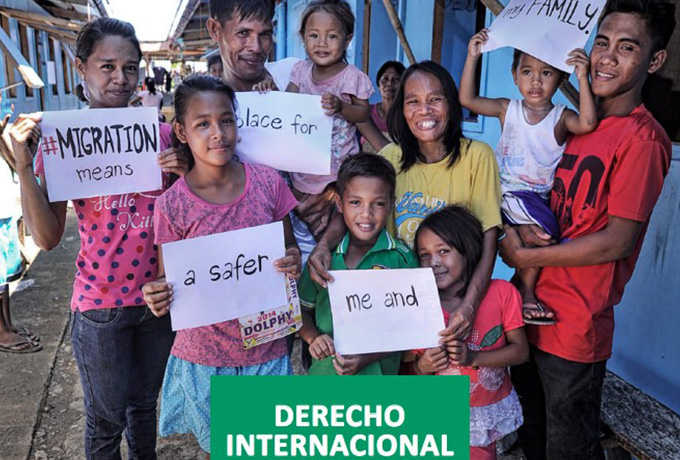Remittances:
Personal monetary transfers, cross border or within the same country, made by migrants to individuals or communities with whom the migrant has links.
Reintegration:
A process which enables individuals to re-establish the economic, social and psychosocial relationships needed to maintain life, livelihood and dignity and inclusion in civic life.
Regularization:
Any process or programme by which the authorities of a State allow non-nationals in an irregular situation to stay lawfully in the country, by granting them a regular status.
Refugee:
According to the 1951 Convention relating to the Status of Refugees, a person who, owing to a well-founded fear of persecution for reasons of race, religion, nationality, membership of a particular social group or political opinion, is outside the country of his/her nationality and is unable or, owing to such fear, is unwilling to avail himself/herself of the protection of that country; or who, not having a nationality and being outside the country of his/her former habitual residence as a result of such events, is unable or, owing to such fear, is unwilling to return to it. Moreover, the Cartagena Declaration on Refugees extends the category of refugees as defined in the Convention relating to the Status of Refugees to persons whose life, safety or freedom have been threatened by generalized violence, external aggression, internal conflicts, massive violation of human rights or other circumstances seriously disturbing public order.
Sustainable reintegration:
In the context of international return migration, reintegration can be considered sustainable when returnees have reached levels of economic self-sufficiency, social stability within their communities, and psychosocial well-being that allow them to cope with possible (re)migration drivers.
SOGIESC diversity:
Generic term encompassing all individuals whose sexual orientation, gender identity, gender expression and/or sexual characteristics place them outside the culturally dominant categories.
Social inclusion:
The consistent process of improving the ability, opportunity, and dignity of people who are disadvantaged because of their identity, to take part in society.
Social Cohesion:
While there is no one universal definition, social cohesion is usually associated with such notions as “solidarity”, “togetherness”, “tolerance” and “harmonious co-existence” and refers to a social order in a specific society or community based on a common vision and a sense of belonging to said community; where the diversity of people’s different backgrounds and circumstances are appreciated and positively valued; those from different backgrounds have similar life opportunities; and strong and positive relationships are being developed between people from different backgrounds in the workplace, in schools and within neighbourhoods.
Vulnerable group:
Depending on the context, any group or sector of society (such as children, the elderly, persons with disabilities, ethnic or religious minorities, migrants, particularly those who are in an irregular situation, or persons of diverse sex, sexual orientation and gender identity (SSOGI)) that is at higher risk of being subjected to discriminatory practices, violence, social disadvantage, or economic hardship than other groups within the State. These groups are also at higher risk in periods of conflict, crisis or disasters.



